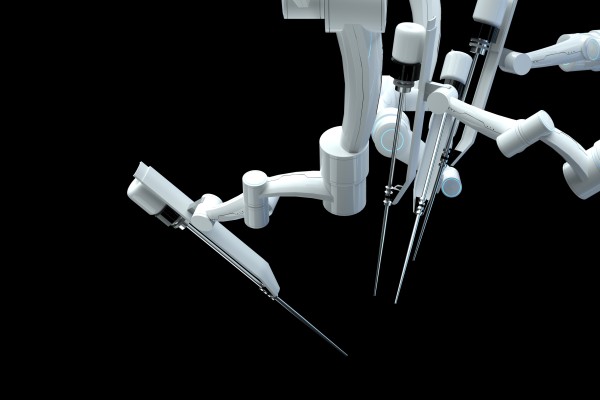-
-
2.1.Nanomedicine
-
2.2.Tissue Engineering
-
2.3.Surgical Robots
-
2.4.Biomarker Discovery
-
2.5.Wearable Biosensors
-
2.6.Smart Fabrics
-
What drives us to talk about health tech? ensun aims to speed up global business progress. Our web crawlers gather data, and our text-based algorithms organize it systematically. By combining our internal data with external sources, we offer insights into the latest technologies and spotlight the top innovators behind them.
For this report, we've analyzed over 508+ relevant companies within the health tech sector.
But first, let's clarify what health technologies are. The World Health Organization (WHO) declares them as “the application of organized knowledge and skills in the form of devices, medicines, vaccines, procedures, and systems developed to solve a health problem and improve quality of life”. In short, it's about using knowledge and skills to develop solutions that improve health and quality of life.
With this in mind, let’s dive into forecasted developments for healthcare technologies.
Forecasted Developments for Healthcare Technology
Experts expect the health tech market to grow up to $504 billion in size by 2025. In India alone, the market is set to fivefold, jumping from $5 billion in 2023 to over $25 billion by 2025. Indicating the growing importance new health technologies play. McKinsey mentions one trend explaining this prediction. Consumers are leaning towards a healthier lifestyle, which they can back by data. Products and services that help them do so are becoming more and more asked for. Fitness trackers to monitor one's workout or apps to help you improve your sleep are just a handful of examples.
On the other hand, health care professionals can use the benefits of this development to improve patient care. With the right data, it can be easier to diagnose problems earlier and with more accuracy, leading to more personalized and efficient treatments at possibly not much higher cost. In addition to driving improvements in health outcomes, the economic landscape is also experiencing growth. Both established companies and startups profit from this, allowing for further innovations in other healthcare technologies, while creating more job opportunities.
Simply put, innovation is essential for any company's success in this industry. Those that can't adapt and keep up with new developments will likely fall behind.
Latest Health Technologies and Their Top Innovators
Since the impact of economic growth and the fuel it provides for innovation in the industry is now established, what exactly are those innovations? This paragraph is supposed to go beyond typical buzzwords like Cloud Computing or AI. Instead, we will try to introduce you to other relevant industry-driven topics, that are gaining traffic, but are not too prevalent in the public eye. All while giving credit to companies, who are the top innovators in their field.
So, let's take a closer look at very promising technological trends.
Nanomedicine
Nanomedicine, as a more specific topic of nanorobotics, taps into the power of nanoparticles to deliver medications precisely where they're needed in the body, boosting treatment effectiveness while reducing side effects. It spans various areas such as cancer treatment, regenerative medicine, diagnostic imaging, and gene therapy. By harnessing the special traits of nanomaterials, nanomedicine offers promising solutions to complex medical issues.
Top Innovators
- Nanoco's trailblazing use of cadmium-free quantum dots extends into nanomedicine, where their non-toxic CFQD® technology promises to revolutionize diagnostic imaging and targeted drug delivery, showcasing their pioneering role in the field.
- SAFE-n-Medtech champions nanomedicine innovation with a comprehensive platform that accelerates the creation and dissemination of nano-enabled medical technologies, backed by a vast European network through CEBR.
Tissue Engineering
Tissue engineering presents a vast opportunity to enhance patient outcomes in biological tissue surgery. Researchers are striving to create materials and clinical approaches capable of repairing, replacing, or regenerating tissues, and even organs. This technology holds promise across various medical fields including cancer treatment, skin regeneration, and cardiology, offering hope for significant advancements in regenerative medicine and ultimately improving patient well-being.
Top Innovators
- CellGenix advances tissue engineering through a fusion of deep GMP expertise and partnerships that streamline the journey of therapies from research to clinical application.
- Cenobiologics innovates in tissue engineering by rigorously adhering to regulations, utilizing advanced facilities, and collaborating with academia and professionals to deliver high-quality bio-implants for transplantation.
Surgical Robots
Surgical robots represent a groundbreaking leap in surgical efficiency, offering unprecedented support to surgeons during intricate procedures. These sophisticated machines are engineered to provide enhanced precision and agility, enabling access to hard-to-reach areas within the body while minimizing trauma. Their utilization has revolutionized numerous medical procedures, including tumor removal and tissue cutting. With ongoing technological advancements and comprehensive training programs for medical personnel, surgical robots are steadily evolving into a safe and dependable asset in modern medicine.
Top Innovators
- Vicarious Surgical spearheads innovation in minimally invasive surgery with its FDA-acknowledged robotic system, promising unprecedented precision and 3D visualization for surgeons.
- Monogram Orthopaedics is revolutionizing joint replacement with custom 3D-printed implants and robotic precision, enhancing patient outcomes with a commitment to innovative, personalized care.
Biomarker Discovery
Biomarkers in medicine play a crucial role in disease detection, particularly in blood tests. This process involves thorough research and analysis, leveraging advanced technologies like genomics, proteomics, and metabolomics. The discovery of biomarkers facilitates early diagnosis, tailors treatment plans, and enhances disease monitoring.
Overall, biomarker discovery follows a systematic approach, starting from screening through validation and clinical testing, to ultimately enhance medical diagnosis and treatment strategies.
Top Innovators
- Scailyte leverages their advanced AI platform, ScaiVision™, to reveal vital biomarkers from single-cell data, pioneering personalized medicine with unparalleled precision.
- Sapient’s expertise in biomarker discovery is shaping the future of health interventions, from pioneering nutrition to novel disease prevention and treatment strategies, driven by their commitment to biomedicine and accredited scientific excellence.
- JADBio simplifies advanced machine learning for BioMed and multi-omics, enabling those without data science expertise to rapidly develop predictive models with its user-friendly AutoML platform.
Wearable Biosensors
Wearable biosensors utilize biometric elements such as enzymes and antibodies to gather crucial data about the inner workings of the human body. They achieve this by tracking skin conduction or detecting changes in pH levels and glucose. However, this innovative technology also poses significant challenges. Sensor size, quality, and power consumption are paramount for ensuring user comfort and device reliability. Additionally, considerations regarding power supply, communication security, and privacy are vital to fully realize the potential of wearable biosensors.
Top Innovators
- Grapheal is revolutionizing sensor technology with minimalistic, smartphone-integrated graphene sensors anticipated to slash production costs and carbon emissions, partnering with industry giants to drive new healthcare and environmental monitoring solutions to market.
- LifeSignals redefines health monitoring with cost-effective, clinical-grade wearables and a scalable System-on-Chip platform, broadening access to advanced healthcare solutions worldwide.
- iRhythm blends wearable technology and advanced data analysis to provide actionable health insights, prioritizing patient care and innovation in their pursuit of proactive digital healthcare solutions.
Smart Fabrics
Smart fabrics, revolutionizing our clothing, encompass a range of innovative textiles designed to seamlessly integrate technological components. Among these fabrics are:
- Thermochromic Fabrics: Colors change with temperature shifts.
- Conductive Fabrics: Transmit electrical signals for wearable electronics.
- Self-Healing Fabrics: Repair damage automatically.
Athletes benefit greatly from advanced textiles, by optimizing performance and reducing injury risks. Yet, these advantages aren't limited to professionals; everyone can profit from these fabrics as they adapt to various conditions.
Top Innovators
- Thermaissance leverages nanotech to produce smart textiles with potent antimicrobial properties, aiming to drastically lower infection risks while prioritizing sustainability and non-toxicity in their products.
- THERMARMOUR delivers advanced insulating fabrics designed to prevent hypothermia in medical and emergency use, continually innovating for wider life-saving applications.
Navigating Technological Evolution
In summary, the landscape of healthcare technology is rapidly evolving, driven by innovative advancements and groundbreaking solutions. With the influence of these technologies, healthcare will become more personalized, efficient, and accessible in the future than ever before. But healthcare technology is not the only field evolving. Our B2B search engine unveils you suppliers for the exact technology you are looking for – globally and inter-industrial.
Start searching here now.
FAQ about Health Tech
Electronic Health Records (EHR), telemedicine, medical imaging (MRI, CT), health apps, wearables, and robot-assisted surgery are among the most used healthcare technologies. These innovations improve patient care, diagnosis, and treatment efficiency. Continued advancements like AI diagnostics and virtual reality applications are shaping the future of healthcare technology.
Patient safety can be achieved through the utilization of medication alerts, clinical flags, reminders, improved tracking and reporting of consultations and diagnostic testing, clinical decision support systems, and access to comprehensive patient data.
SMART Health IT is an open, standards-based technology platform that empowers innovators to develop apps capable of seamlessly and securely operating across the healthcare system.
The European Union and the United States lead biomedical research and publications, with the U.S. generally ahead in most scientific disciplines. However, the EU remains a significant contributor to global biomedical research, with both regions influencing scientific advancement globally.
Technology does have its limitations, primarily stemming from economic factors, ethical considerations, and natural constraints. Some of these limitations arise from human perspectives or governmental regulations.
Quickscout
Looking for suitable
technology providers?
Start scouting!





